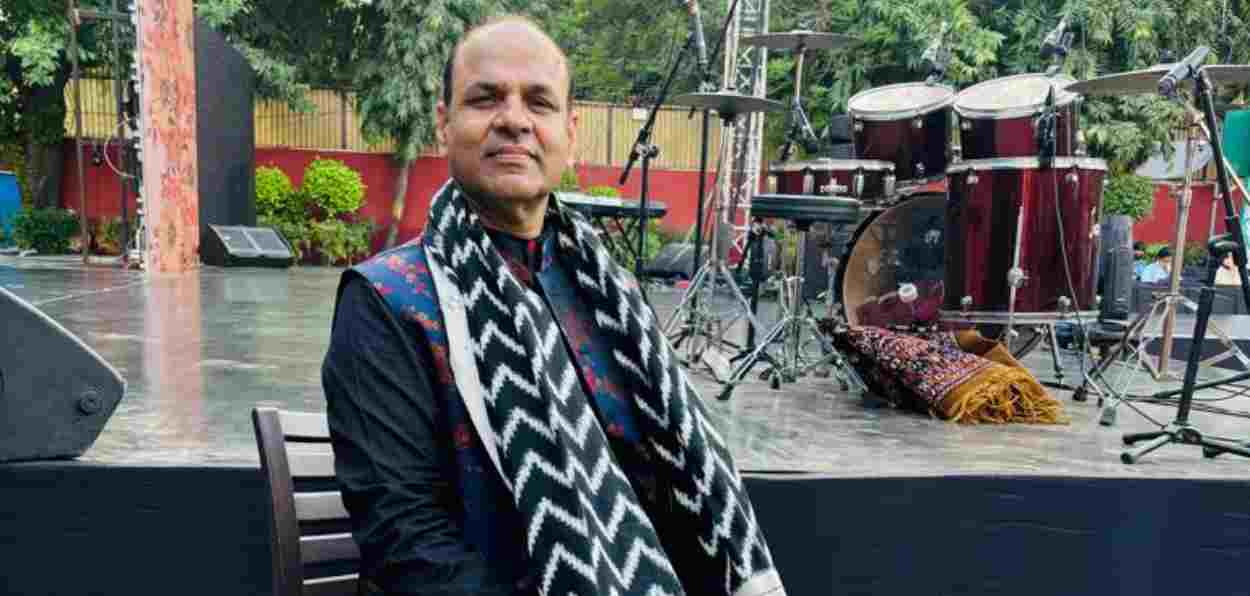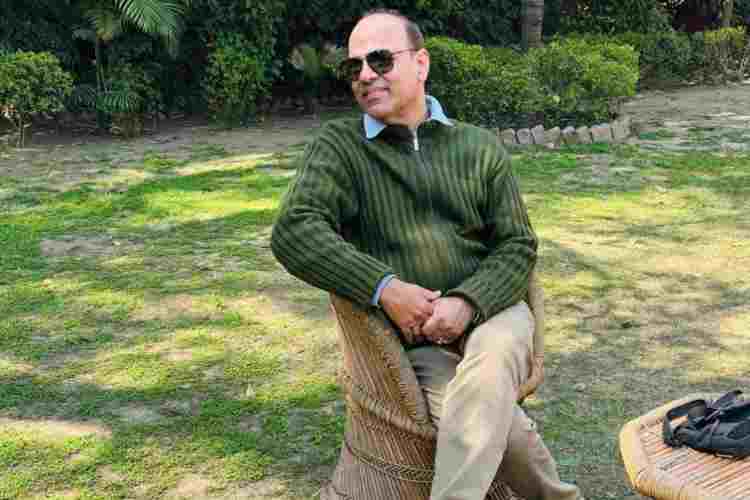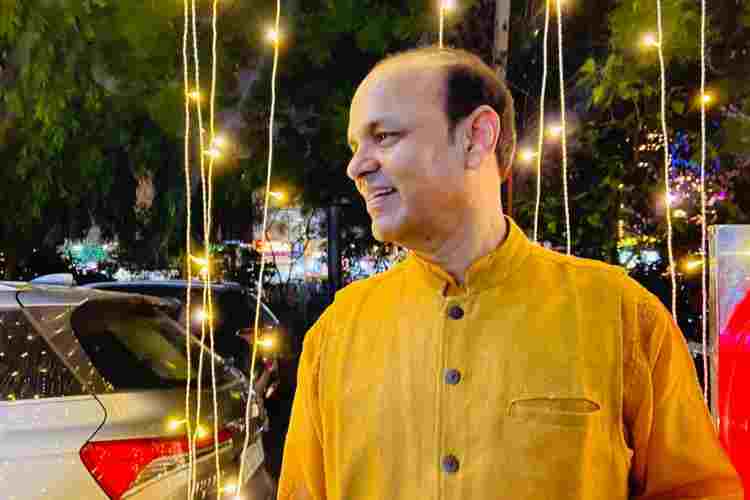
Aasha Khosa/New Delhi
Hori folksongs are sung around the festival of colours, Holi, which falls on Monday, March 25, and these offer an opportunity for Indian classical singers to sing for the masses. According to Mohammad Hameed Khan, a classical singer specializing in Khayal gayaki, “The genre of Hori songs is all about Lord Krishna and Lord Shiva, and paeans to their ways of playing with colours and the victory over evil.”
The Indian festival of Holi is intrinsically linked to music and brings the imagery of Lord Krishna and Lord Shiva to the minds of the singer, says Hameed, whose journey began in the small town of Kishangarh in Rajasthan. He says “people in different temples and regions have their hories centered around their deities.”
Today, he lives in Faridabad, a city in the Delhi NCR Region, and teaches Music in a reputed New Delhi school. “In my childhood, we never thought of ourselves as any different from the majority population of our town who were mostly Hindus and other religious denominations. We celebrated all festivals, but enjoyed playing Holi the most.”
 Mohammad Hameed Khan
Mohammad Hameed Khan
Going down memory lane, Hameed says, “My mother even followed local traditions of praying to Goddess Laxmi (for wealth) and at the Sheetla Mata temple (for welfare and health of children). On the day of Sheetla Mata festival, she served us cold food.”
Hameed loves colours as he remembers in his childhood. “For us, the children living in Kishangarh, Holi was all about colours, masti (revelry), mithia (sweats) and dancing and singing.”
As Hameed was invited to various events to play traditional songs on the eve of Holi, he told me that he had inherited musical genes from his grandfather Gani Khan. The latter was a kalavant (court artist) in the Kishangarh Riyasat. His sons, however, picked government jobs instead of music. Gani Khan’s legacy would have come to an end but for his one son – Hameed’s uncle – who trained himself in music.
Mohammad Haneef Khan doing riyaz
Hameed was encouraged to study for the sake of finding a steady job, but he quietly admired his musician uncle and also followed him. “I would sing and be spotted in school for my talent, but it was nothing more than rudimentary style. I would also be asked to sing at local functions in the town,” he told Awaz-the Voice.
Strangely, he says, it was his association with an NGO that made him pursue his big dream of reviving his grandfather’s legacy and learning music in a formal setting. “One day a nukkad natak troupe of Aruna and Bunker Roy’s NGO from Tilonia visited our village and they were so impressed by my performance that I ended up joining their cultural team.”
During his work with an NGO that specialized in rural development, Hameed discovered his connection with the soil, people, and traditions. It triggered his latent desire to become a musician.
He quit his job and moved to Delhi in search of a Guru to learn Hindustani Classical Music. He secured admission in the prestigious Sri Ram Bhartiya Kala Kendra in 1995 to learn Indian classical music under the guidance of Shanti Sharma. He also received a national scholarship for seven years that paid for his expenses of living and training in the big city.
He was part of the artists’ group for the famous Ramleela of Shri Ram Bhartiya Kala Kendra in 2000.

Mohammad Haneef Khan
Hameed says that on the festival day, when he sees his children playing Holi he is transported to Kishangarh of his childhood where all the festivals were celebrated by all the people.
“Till I turned an adult, I didn’t realize being Muslim meant that I have a religion which is different from the one espoused by the majority of the people living in his township.”Dealing with today’s children who at times tend to express their religious identity aggressively, Hameed says, “It’s a passing phase.”
“Change is inevitable and young minds are volatile: we should take this in our stride,” he says with a smile.
“We (Indians) have been living together for thousands of years and it would remain so always,” he says. He is happy that the underprivileged children are also part of his class and he can impart musical training to all the children.
He remembers that at the Shri Ram Bhartiya Kala Kendra there are lots of artists and teachers from all communities and he never even thought of having faced discrimination or being treated differently anywhere.
ALSO READ: Hues of Holi blend with Dol and Basanto Utsav in Bengal
All art is eternal; art invokes positive energy within all of us,” he says.
To those who spread fears, he says, “Nothing will happen to our Indian culture and ways of life; its roots are deeper than we think.”
